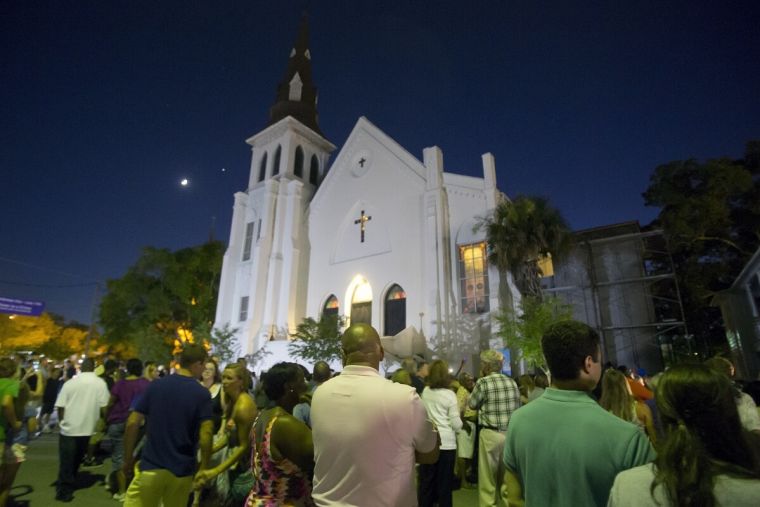Charleston AME Church hosts historical cross-racial meeting
The Conference of National Black Churches (CNBC) is hosting its first interracial gathering of churches in Charleston this week, following the June massacre of nine African-American worshippers during a Bible study in the town.

More than 300 clergy and leaders are to attend a three day conference (15-17 December), which will include a worship service at Emanuel African Methoist Episcopal Church, where the shooting took place.
The massacre "signaled the need to create new space for serious dialogue and hard work towards the removal of racial barriers and the resolution of racial tension," Rev Dr Franklyn Richarson, chairman of the CNBC's Board of Directors, told The Chronicle.
"To that end, the consultation is a bold and urgent call to initiate a cross-racial, ecunemical dialogue to address the racial hurts that have recently been laid so grotesquely at the doors of churches."
The white suspect in the killing, Dylann Roof, had written a manifesto online ahead of the shooting, in which he said he had "no choice" but to kill black people.
The church has responded with unity rather dissension, however, working together in order to overcome the increasingly prevelant issue of racism.
"We're not going to be able to resolve the issues of racism alone, whether it is the black church alone or the white church alone," Rev Marvin McMickle, president of Colgate Rochester Crozier Divinity School, told RNS. "I think both hands have to be on the plough."
"It's just really, really important for us to demonstrate that solidarity and our standing with our brothers and sisters so that we can have a country where love is what is the norm and not fear," said Bishop Mary Ann Swenson from the United Methodist Church.
The Conference of National Black Churches was initially set up in 1978 to unite the major denominations of black-majority churches in the US, and this meet is the first time it has been extended to white majority churches. The invitation has been extended to the Presbyterian Church, the United Methodist Church, and the Evangelical Lutheran Church in America.
"The leadership of the seven largest historically Black denominations in America, in partnership with majority White denominations, is uniquely suited to address and implement new solutions for a new era", said Richardson.
"The hurts of the nation have come to the prayer room of the Black Church and CNBC has called on key leaders of religious bodies across the country... to participate in this urgent conversation."











